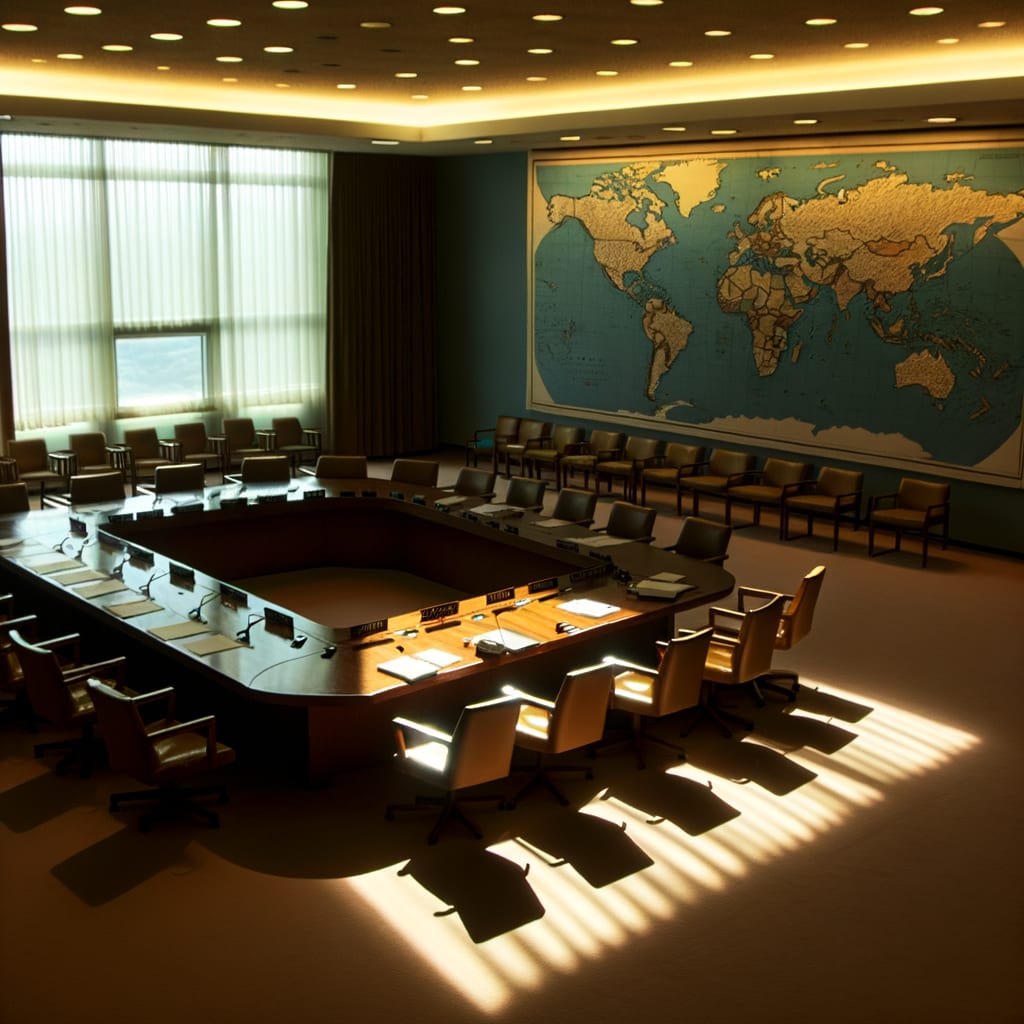Ukraine-Russia Tensions Heighten as West and East Discuss Peace Terms
The ongoing conflict between Ukraine and Russia continues to escalate amidst conflicting narratives and geopolitical interests. Key players on the global stage are attempting to navigate a labyrinth of historical grievances, territorial claims, and democratic aspirations as they negotiate peace terms.
Historical Context and Current Developments
Speaking recently, Russian Federation Council Deputy Speaker Konstantin Kosachev claimed the West seeks a Ukraine deal on its terms, a stance he believes is key to maintaining its monopoly on ruling humanity
(TASS). Meanwhile, President Putin is said to be preparing 'historical materials' framing Ukraine as an artificial state, a move Ukraine's Center for Countering Disinformation suggests is intended to justify Russia's territorial claims and ongoing military aggression (Kyiv Independent).
Likewise, President Putin has not altered his rhetoric on the Ukraine war after his meeting with U.S. President Donald Trump in Alaska, emphasizing that the conflict is related to Russia’s diminished status since the fall of the Soviet Union (New York Times, Ukrinform).
Diverging Perspectives and Conflict Dynamics
This conflict has seen a multitude of voices from various corners of the world. Russian analyst Gabuev opined that Ukraine is slowly losing the war and Putin is uninterested in a truce, likening the conflict model to that of World War I (Corriere della Sera). On the other hand, a Turkish historian suggested that Russia's modern empire may fall apart, giving it the opportunity to embark on a democratic path of development (Ukrinform).
In Ukraine, many residents feel sidelined and mistrustful as they have been left uninvited to key talks. The Kyiv Independent reported on the sentiments of residents in the front-line city of Kramatorsk concerning potential land swaps between Ukraine and Russia.
International Response and Reactions
The international community's reactions to this conflict have varied. The OSCE Secretariat has been accused of reluctance to use the term “Russian aggression against Ukraine,” a move Ukraine’s envoy Vitrenko sees as avoiding the real nature of Russia's war of aggression against Ukraine (Ukrinform).
In the wake of Putin's meeting with Trump, Ukraine’s ambassador to Australia criticized Putin's ambition to “revive the Soviet Union” by “destroying democracy next door” (The Guardian). Putin has also supported Trump's claim that the Ukraine war would not have happened if Trump had won the 2020 election (Fox News).
In a joint statement, Nordic and Baltic countries expressed their support for Ukraine's sovereignty, blaming Russia's aggression and imperialist ambitions as the root causes of the war (Kyiv Independent).
Looking Forward
Despite the ongoing hostilities, some believe that Ukraine can continue its military operations for up to six months without Western money (TASS). Meanwhile, skepticism remains in Kiev as many believe a temporary solution is unappealing, vowing to continue the fight (Corriere della Sera).
As the tension continues, Ukraine and Russia have yet to find a common ground for peace. Putin urges Kiev to meet Russia halfway, stressing Russia's dominant role in the Ukrainian issue (TASS). However, with Putin's claims on the table regarding Ukraine, including the recognition of Russian as an official language in Ukraine (ANSA), the road to peace remains uncertain.

